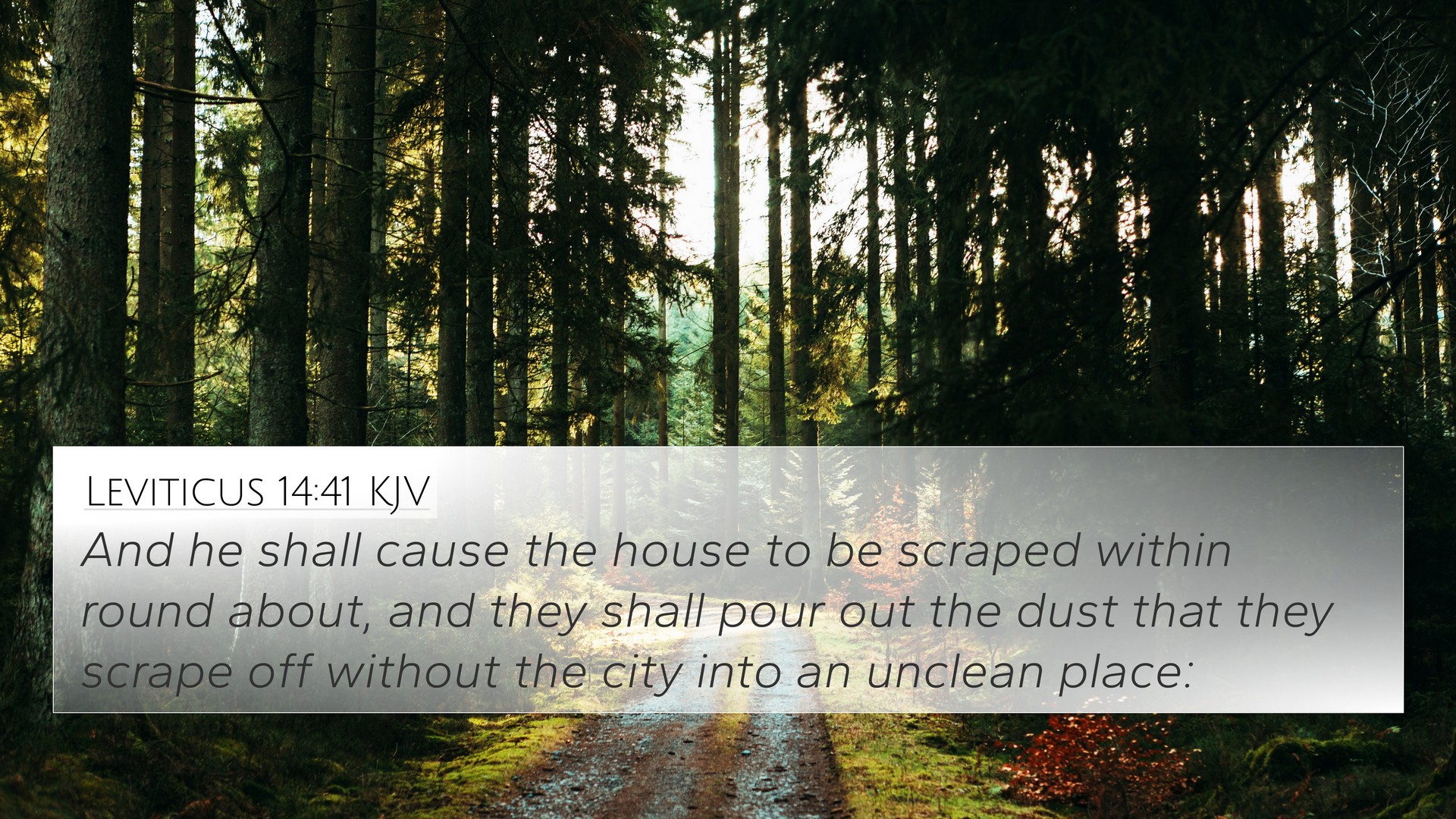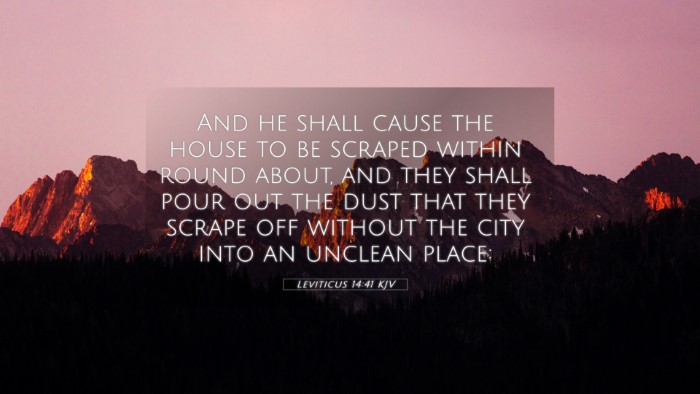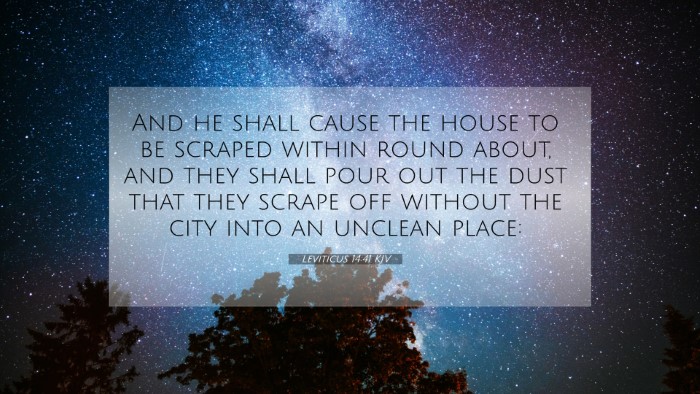Bible Verse Meaning: Leviticus 14:41
Leviticus 14:41 states:
“And he shall cause the house to be scraped within round about, and they shall pour out the dust that they scrape off without the city into an unclean place.”
This verse is part of the detailed regulations concerning the cleansing of leprosy in houses. The significance of these practices relates to both physical and spiritual purity, illustrating the importance of God’s commandments in the life of His people.
Understanding the Context
The background of this verse arises from the broader context of cleanliness laws present in Leviticus. The chapter outlines procedures for identifying and cleansing a house affected by leprosy, which served as an emblem of sin and impurity. Several insights can be drawn from esteemed public domain commentaries:
-
Matthew Henry:
Henry emphasizes the importance of spiritual disciplines in aligning with God's holiness. He likens the physical cleansing of the house to the necessity of purging sin from our lives. It asks believers to consider what impurities may reside within, encouraging self-examination.
-
Albert Barnes:
Barnes highlights the spiritual implications of the regulations around leprosy. He notes that the act of scraping and removing dust signifies the importance of addressing sin and transgressions that may have accumulated in our lives. It's a call to diligent personal worship and purification.
-
Adam Clarke:
Clarke interprets the physical act described as a metaphorical representation of God’s desire for purity among His people. He remarks that the dust symbolizes the remnants of sin and speaks to the need for thorough examination in the faith journey, drawing a parallel to the spiritual cleanliness required of believers.
Thematic Connections & Cross-References
This verse can be linked to several other scriptures that highlight themes of purity, sin, and God's regulations regarding cleanliness:
- Leviticus 14:33-35: Directly precedes the instructions on the cleansing process of a house.
- Numbers 19:17-19: Discusses the purification laws concerning the unclean, tying in the overarching theme of holiness.
- Deuteronomy 23:14: Talks about maintaining cleanliness in the encampment of Israel, a foundational theme of spiritual discipline.
- Isaiah 1:16-17: God calls His people to cleanse themselves and do good, manifesting the ongoing need for spiritual renewal.
- Matthew 23:26: Jesus addresses the Pharisees about cleansing the inside of the cup, which parallels the idea of inner spiritual purity.
- James 4:8: Encourages believers to “cleanse your hands, you sinners,” showing continuity of the theme of spiritual cleanliness into the New Testament.
- 2 Corinthians 7:1: Calls for a purification from all filthiness of the flesh and spirit, aligning closely with the Levitical instructions.
Applying the Teachings of Leviticus 14:41
This passage, while presented within the context of ancient Israel, continues to hold relevance for modern believers. Here are some practical applications:
- Self-Examination: Just as the Israelites were instructed to inspect their homes for signs of leprosy, believers should regularly examine their lives for spiritual impurities.
- Confession and Repentance: Recognizing that sin often accumulates insidiously, this verse encourages us to actively seek cleansing through confession to God.
- Community and Accountability: The laws surrounding leprosy emphasize the role of the community in ensuring purity. Engaging with fellow believers fosters a collective journey towards holiness.
- Understanding God’s Holiness: Emphasizing the necessity of clean living reflects God’s character and His expectations for His followers, underscoring the weight of our witness to the world.
Conclusion
Leviticus 14:41 serves as a profound reminder of the importance of purity, not just in a physical sense but also spiritually. Through cross-referencing this verse with others, believers gain a deeper understanding of God’s desire for a clean and holy people. Whether through personal reflection or communal accountability, this verse invites ongoing engagement with God's laws, urging us to embody the holiness that He calls us to.








